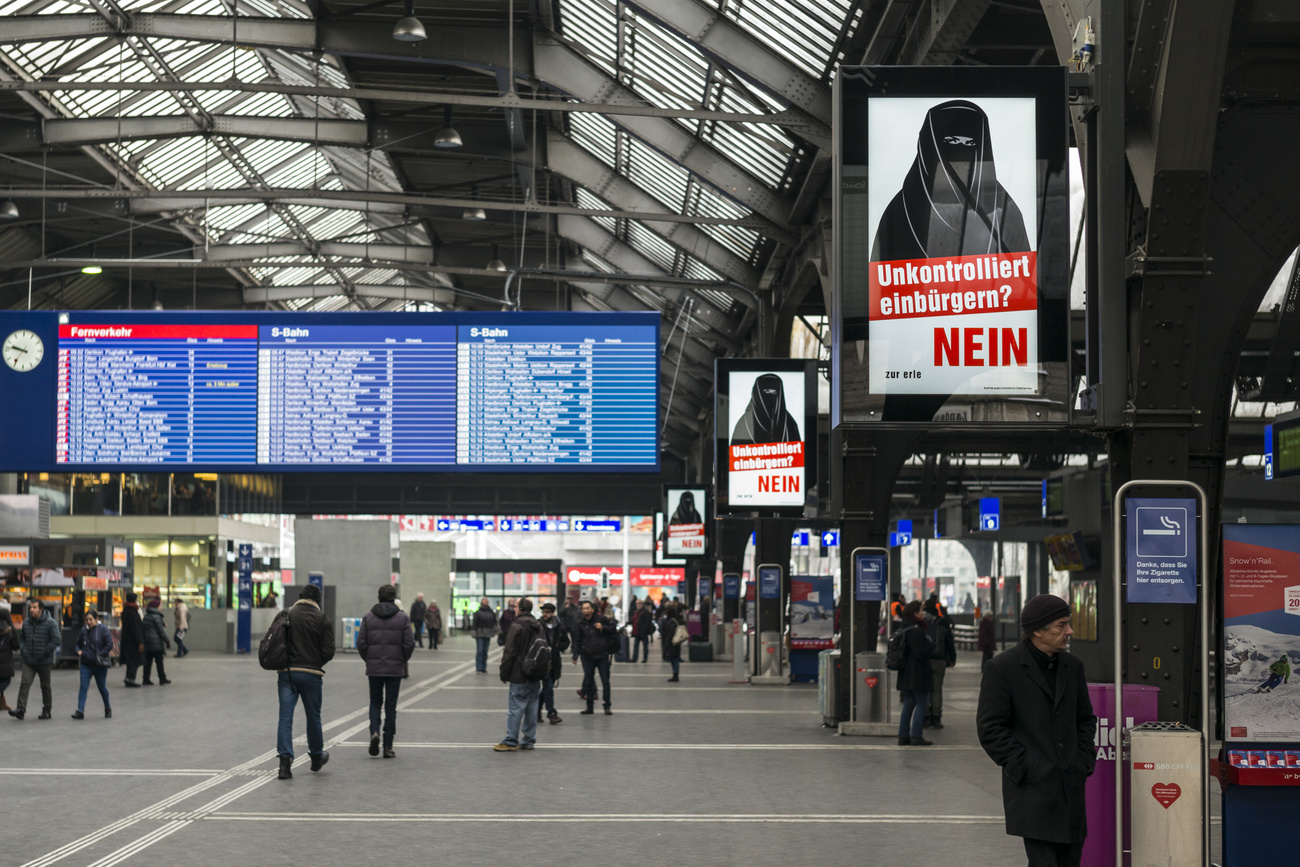
Switzerland votes on introducing electronic ID and abolishing rental tax

Swiss citizens have until noon on September 28 to vote on the introduction of an electronic proof of identity. Pollsters expect a yes. The second issue to be voted on is the abolition of the rental tax for homeowners. The results will be out on the same day.
For many, it’s déjà vu: after 2021, Swiss citizens are deciding for the second time on a law to introduce a system for electronic proof of identity.
The first attempt was rejected due to concerns about data security. The main criticism was that the system would be operated by private companies. This point has been addressed in the new bill, which proposes a system entirely in public hands.
>> Here is our explainer on the new e-ID-law:

More
Swiss voters to decide – again – on introducing electronic ID
The e-ID law enjoys broad support among the population: 59% of Swiss citizens are in favour of it, while 38% are against it, according to the second survey on the issue commissioned by the Swiss Broadcasting Corporation (SBC) and conducted by gfs.bern in September. In addition, 3% of those polled said they were still undecided.
Swiss citizens vote on national issues up to four times a year. The e-ID law had passed both chambers of parliament with a large majority. The Federal Council and all governing parties except the right-wing Swiss People’s Party support it. However, an opposing committee brought up concerns that privacy couldn’t be guaranteed and that the e-ID infrastructure could be used for social credit systems, like in other countries. They explicitly mentioned China. The committee collected over 50,000 signatures for a referendum against the law, and for that reason it comes down to the ballot box.
>> How does a referendum work? Watch our video:

More
What’s a referendum?
Will homeowners get rid of the rental-value tax?
The second bill to be voted on this weekend aims at reforming home ownership taxes. Parliament intends to abolish a tax homeowners have to pay on property they live in (imputed rental-value tax). To do this, the cantons would be, in the sense of a compromise, compensated with an optional new tax on second homes.
As the introduction of the new tax needs a change in the Swiss constitution, citizens must vote on it. A majority of people and cantons have to be in favour of it to pass.
>> Read the details on this tax change in our explainer:

More
Will Switzerland finally do away with imputed rental-value tax on homeowners?
Pollsters see this issue as being too close to call. The second poll found that approval had dropped dramatically since the first poll from 58% to 51%. Among the Swiss Abroad, approval is lower, at 49%. Overall, 4% of respondents are still undecided.
The right-wing Swiss People’s Party, the centre-right Centre Party and the centre-right Radical-Liberal Party are in favour of the reform. Also both chambers of parliament and the Federal Council recommend a yes. They see a balanced reform towards a simpler, more balanced system.
Opponents such as the left-wing Social Democratic Party and the Green Party are concerned about the loss in tax revenue. The Swiss Tenants’ Association – representing a majority of the Swiss population – argues that in the new system tenants would be disadvantaged compared to owners.
As with the vote on e-ID, the abolition of the rental-value tax has also been the subject of previous votes, including the decision in 1999 on the popular initiative “Home ownership for all” and the referendum in 2004 on the “2001 fiscal package”. Both resulted in a rejection of the abolition of the imputed rental-value tax.
A minority decides
Not everyone living in Switzerland can vote on September 28. Only Swiss citizens over the age of 18 and not under guardianship are eligible to vote on national issues. Voters can have their say either by postal ballot or in person at the ballot box. Those living abroad must register. A total of around 5.5 million people overall can vote. This is just under two-thirds of the country’s population of around nine million.
People living in Switzerland who do not have Swiss nationality cannot vote, despite making up about a quarter of the population.
>> What the foreign community thinks about not being able to vote

More
Voting rights: ‘The foreign community is too big to be ignored’
Around half of eligible voters usually turn out to the polls. Over the past ten years, the annual average voter turnout has been between 41% and 57%, according to the Federal Statistical Office. In practice, this means it takes about 1.5 million votes to win.
Canton Vaud aims to loosen voting restrictions for foreigners
In canton Vaud voters will decide whether non-Swiss citizen living in the canton can vote and be elected after having lived in Switzerland for just five years. Currently the waiting period is ten years. The condition that foreign nationals need to have been domiciled in the canton for at least three years remains.
The housing shortage in Switzerland has resulted in votes in two cantons. Geneva will decide on an initiative calling for 10% of the cantonal housing stock to be owned by non-profit cooperatives by 2030, compared to 5% today. At the same time, Bern is voting on an initiative aiming at more transparency in the tenants’ market – by obliging landlords to disclose the previous rent when there is a change of tenant in times with limited low vacancy rates. A similar system already exists in several other cantons such as Basel City, Geneva, Lucerne and Zurich.
Votes are also scheduled in some Swiss cities and municipalities this weekend. In Zurich, Switzerland’s largest city, for example, people are awaiting the outcome of a vote on banning leaf blowers.

More
Democratic din: voters to decide fate of leaf blowers in Zurich
Edited by Samuel Jaberg/ts

In compliance with the JTI standards
More: SWI swissinfo.ch certified by the Journalism Trust Initiative





























You can find an overview of ongoing debates with our journalists here . Please join us!
If you want to start a conversation about a topic raised in this article or want to report factual errors, email us at english@swissinfo.ch.